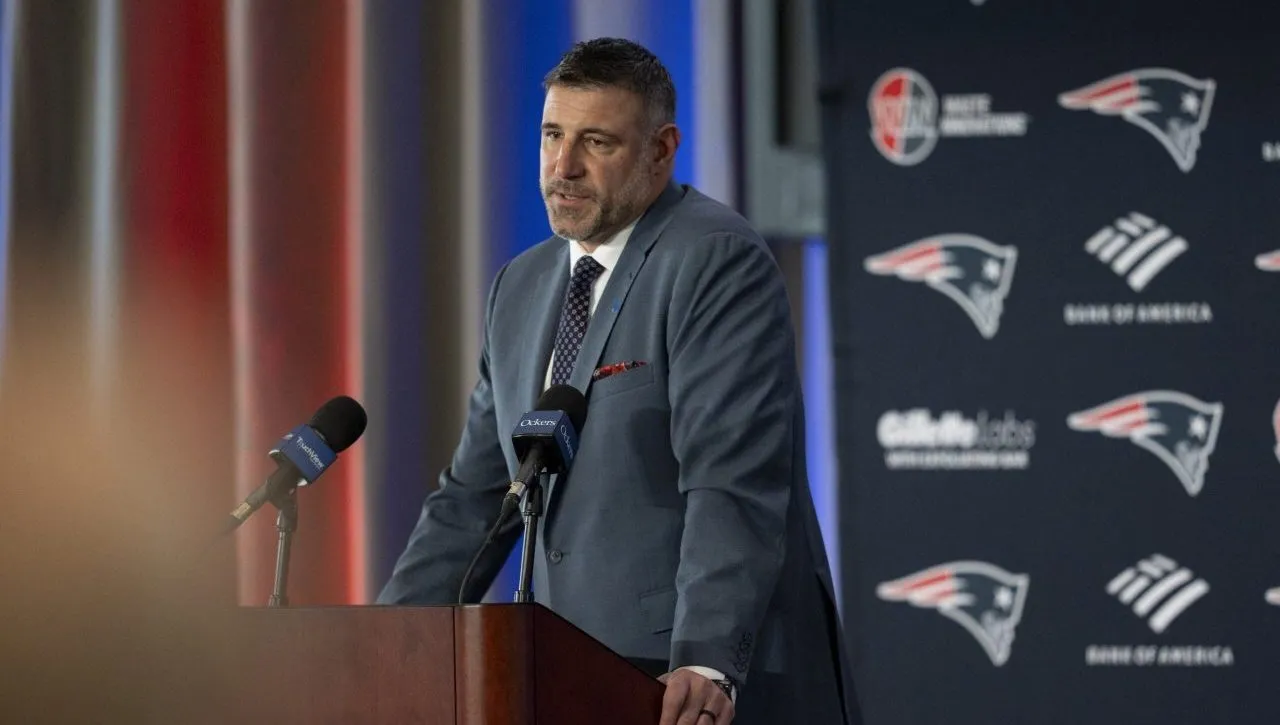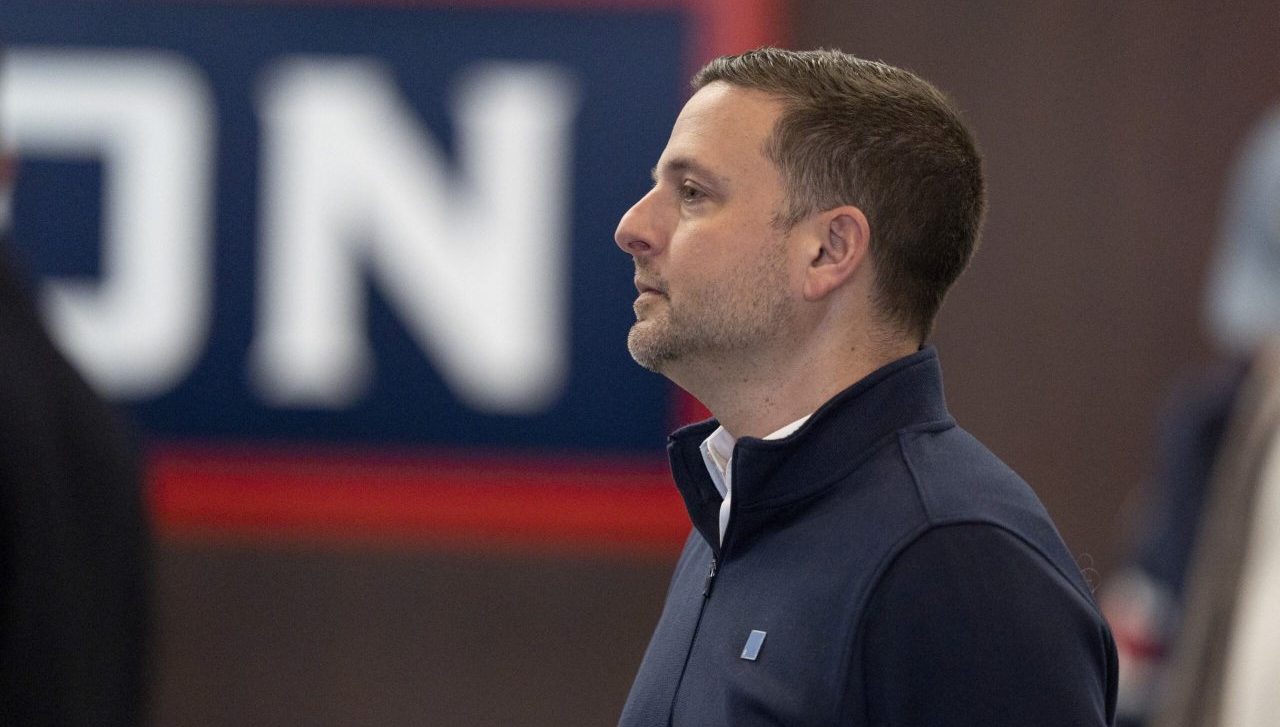
FOXBORO -- For Cordarrelle Patterson, one of the most productive kick-returners in the NFL over the last few years, the rule changes to the kickoff that were approved this offseason won't exactly be life-altering.
"For me personally, it don't change nothing," he said. "Nine deep, eight deep, four deep, whatever. I approach every kickoff like it's the last. That's something I take good pride in. Any time I get the ball in my hands, I'm trying to make an explosive play."
But for the players in front of Patterson, based on what reporters have seen through two days of Patriots minicamp, there's been all kinds of choreography that's taken place when the team has practiced kickoffs and kick returns.
And "choreography" may be putting it nicely. "Organized chaos" might be more apt.
"It's going to take a lot. It's a huge adjustment," Matthew Slater said following Wednesday's minicamp practice. "We did it [Tuesday], you go back and look at the film, there was so much for us to clean up. The spacing is going to be the biggest issue. Spacing and timing, ball-handling because of that space. I think we're going to have to learn the techniques, learn the schemes, and film-study is going to be huge this year once you start to see how teams are going to play the play. But I'm excited to see how it goes."
In the name of player safety, several proposed rule changes for the kickoff presented to NFL owners at this year's Spring League Meeting in Atlanta were eventually approved. Even though the changes could drastically alter the look of kickoffs as fans knew them, the tweaks might've saved the play if they can make it safer. The alternative might've been eliminating the kickoff altogether.
Among the changes implemented? Kick coverage units will no longer be able to get running starts before the ball is kicked. Return units, meanwhile, must have at least eight players in a 15-yard set-up zone closer to midfield prior to the kickoff -- meaning only three players will be eligible to align deep. The idea behind the changes was to have more players traveling down the field together at the same time, potentially reducing the number of high-impact collisions and injuries associated with the play.
New England Patriots
Find the latest New England Patriots news, highlights, analysis and more with NBC Sports Boston.
But the different alignments and the different timing of the play means there's a lot for teams to figure out this time of year. The tinkering is on, and the Patriots have seemingly committed a great deal of coaching man power to help themselves and their players get adjusted as quickly as possible.
Not only has special teams coach Joe Judge kept a close eye on the kickoff periods during minicamp, but the same has been true for new assistant special teams coach Cam Achord, former Arkansas head coach and new Patriots assistant Bret Bielema (who's been around the team since the pre-draft period but has not been announced as an official hire), and director of football research Ernie Adams.
Achord has been particularly entertaining to watch during practice sessions as he has sprinted down the field with the kickoff group to get an up-close feel for how lanes are being filled and blocks are being executed.
"Because it's so different, because you've got so many guys doing new techniques, [the number of coaches committed to the play] is something that we do need," Slater said. "It may seem like overkill, but it's going to be good for us over the long haul . . .
"The beauty is, they all have different coaching styles. They see the game in their own ways and communicate. And how cool is it to have coach Bielema out here though? This guy was coaching in the SEC last year at one of the best programs in the country, and now he's out here coaching the kicking game and doing whatever he can to help us out."
As a longtime captain and seven-time Pro Bowler, Slater's taken on some quasi-coaching responsibilities as well. He can be seen during practice, in between special teams periods huddling with coaches as they discuss what they've seen or their plan of attack moving forward.
"I think that's part of my role as a leader on this team," he said. "As a guy who's had a career, a long career, and closer to the end than the beginning, it's my duty to pass on knowledge and try to help out guys as I continue to grow. I enjoy working with those guys as we all try to improve."
Slater's doing more than passing on knowledge, though. If there was a player doing more sprinting during the special teams periods on Wednesday, he was hard to spot. Now into his early 30s, Slater's job description continues to require him to be one of the fastest players -- if not the fastest -- on the roster. Though it's only the spring, and though pads have yet to be introduced, he still looks every bit the part.
"I've been very blessed, man," he said. "The good Lord has helped me age somewhat gracefully. I have my nicks here and there, but thats really Him showing me favor and watching over me on that football field. I've had a lot of great people, [head trainer] Jim Whalen and his staff spend a lot of time with me. [Head strength and conditioning coach] Moses Cabrera has trained me really hard. And I try to do my part working hard, but the Good Lord has taken care of me. I'm thankful at 32 years old, in year 11, to be able to move around a little bit."
One of the positions Slater could man on kick-return, as one of two "ends" in the set-up zone, could require him to move around more than a little bit. While responsibilities of different players and different positions are still being ironed out, teams are going to have to figure out how to get players from that up position in the set-up zone back to chip in as lead blockers. That could mean utilizing exceptionally fast players like Slater to get from near midfield, back to a blocking position in front of the returner, and then up the field in the matter of a few seconds.
On Wednesday, some players looked like they were running the equivalent of basketball "suicides" with helmets on.
How exactly that sorts itself out will take some time. Figuring out all aspects of the kickoff under the new rules as already eaten up time for the Patriots, both on the field and behind the scenes. There's no doubt it will look different, but it's not totally foreign. And that it hasn't been wiped out altogether is a source of great solace for someone like Slater.
Earlier this offseason, he feared that could be the case, telling reporters that eliminating the kickoff would be "changing the fabric of the game."
On Wedneseday Slater explained he was "thrilled" that one of the plays that has allowed him to put together the career he has remains. Even if it has a new look.
"Very thankful that they took efforts to save the play, and hopefully make the play safer at the same time," Slater said. "As a core guy, a guy who the only reason I play in this league is because of the kicking game, I'm thankful they found a way to keep that play and maintain the integrity of the game."


